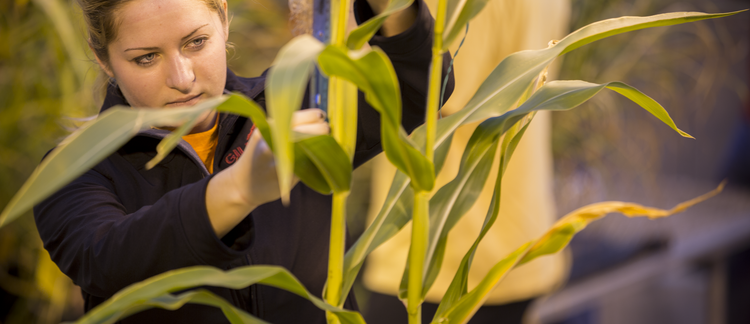Abstract
The soybean aphid (Aphis glycines Hemiptera: Aphididae) is the most economically important insect pest of soybean in the North Central United States. An aphid outbreak can reduce yield by 40 percent. Foliar insecticides are the most widely used management strategy to protect against yield loss from soybean aphids, but recent resistance to insecticides has been reported. Using varieties with native aphid resistance genes (Rag) also is an effective strategy to suppress aphids and can replace insecticides. Additionally, a pyramid of two Rag genes offers more protection against aphids than a single Rag gene. Despite their effectiveness, Rag varieties are not widely used by soybean producers, partly because of their limited commercial availability. This project partnered with CortevaTM Agriscience to evaluate elite soybeans with and without aphid resistance as a means to combat soybean aphid outbreaks.
How to Cite:
Hohenstein, J., O'Neal, M. E. & Ryan, M., (2020) “Public-Private Partnership to Evaluate Aphid-Resistant Soybeans”, Iowa State University Research and Demonstration Farms Progress Reports 2019(1).
Downloads:
Download PDF
View PDF

